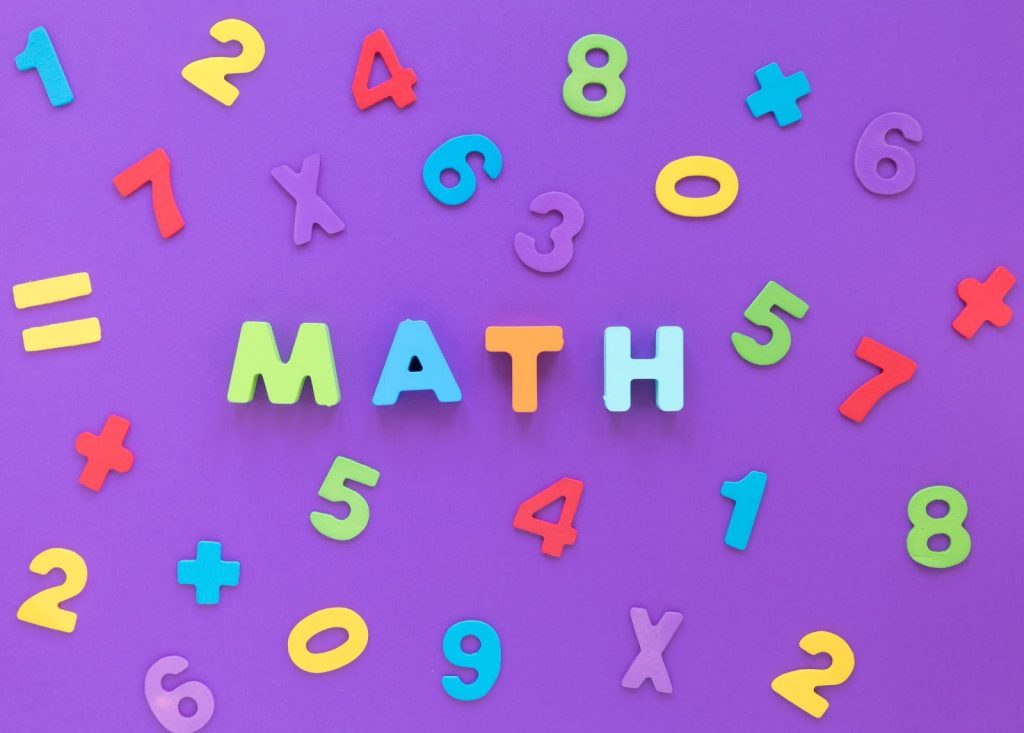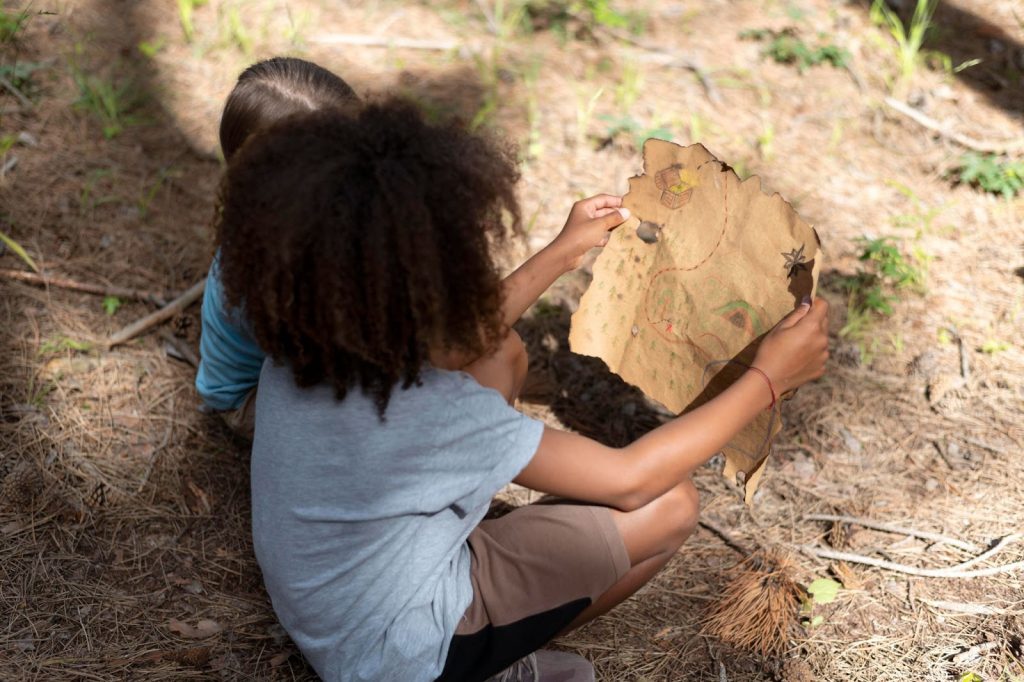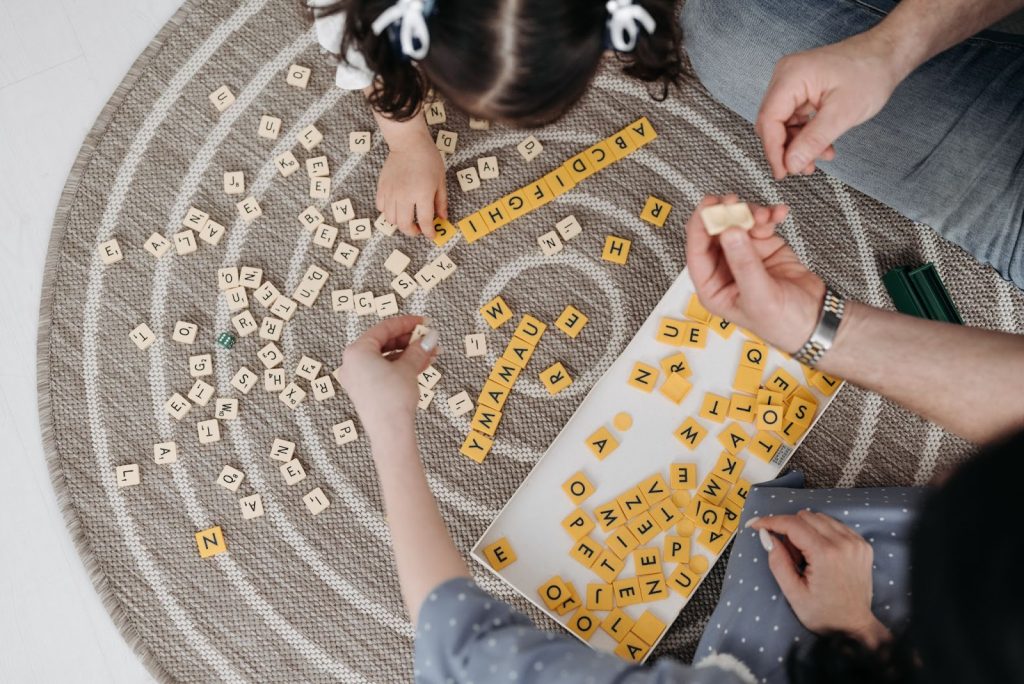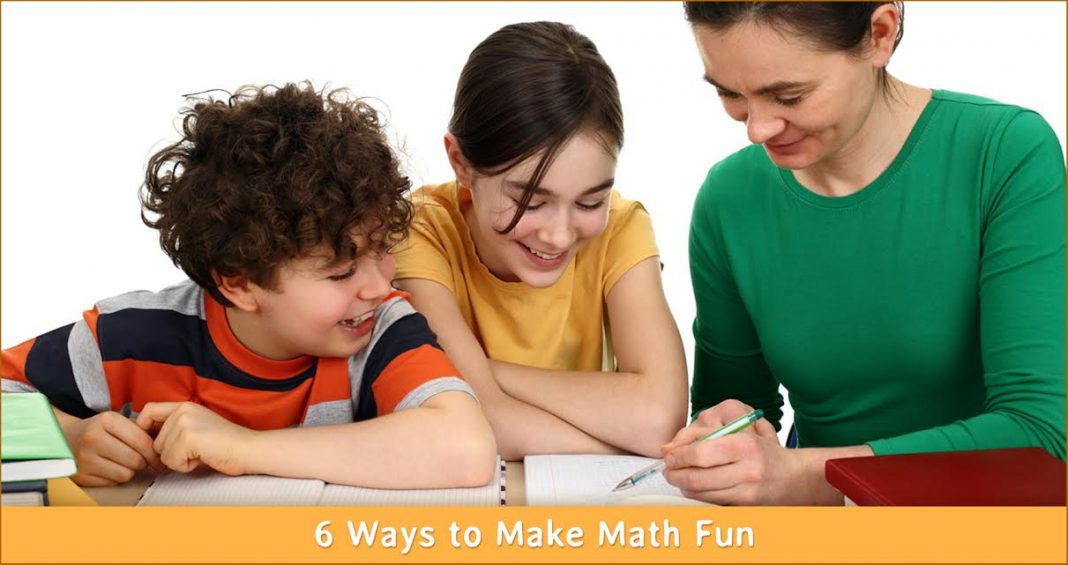Math is fun! While boring worksheets can burn students out and turn math into drudgery, simple activities can inspire a love for it. Math might not be your favorite subject, but it doesn’t have to be that way for your children. Read this blog further to find out how teachers can bring positivity to math lessons and effective ways to make math fun for your children.
Math & ELA | PreK To Grade 5
Kids see fun.
You see real learning outcomes.
Watch your kids fall in love with math & reading through our scientifically designed curriculum.
Parents, try for free Teachers, use for free
6 Ways in Which Teachers can Bring Positivity to Math Lessons
Teachers play a significant role in how kids feel about math. Teachers who make math lessons positive and exciting can make math enjoyable for students. Here are five ways teachers can do that:
- Cultivate a Growth Mindset: Encourage students to believe they can improve their math skills with effort and practice. This way, they’ll see challenges as opportunities to learn and grow.
- Provide Context and Relevance: Show students how math is helpful in real life. They become more interested and motivated when they understand how math applies to everyday situations.
- Use Encouragement and Positive Reinforcement: Praise students for their efforts, progress, and achievements in math. Compliments, certificates, or small rewards like stickers can make them feel accomplished and eager to participate in math activities.
- Foster a Supportive Classroom Culture: Create a safe and inclusive environment where students feel comfortable asking questions, sharing their thoughts, and making mistakes without fear of judgment. Encouraging teamwork and peer support can also improve the classroom atmosphere.
- Providing Individualized Support: Providing individualized support is crucial for students who need extra help, and exploring options with different tutors can offer tailored learning experiences that cater to each student’s unique needs.
- Incorporate Fun and Interactive Activities: Make math lessons more enjoyable by including games, puzzles, and hands-on activities. According to an article by MIND, game-based math instruction successfully develops students’ critical thinking skills, generates a deeper knowledge of mathematical topics, and empowers them to handle challenging issues. Moreover, leveraging technology, such as educational math apps or interactive online platforms, adds excitement and engagement to math lessons.
Despite teachers’ efforts, some students may still need help with math. It’s essential to understand why this happens and find creative ways to make math engaging and exciting for all students, breaking away from traditional teaching methods.
Related Reading: How to Help Kids with Math: 6 Innovating Approaches
8 Reasons Why Some Kids Don’t Enjoy Math
When we look closely at this problem, we see that many students find math hard because it has complicated parts. Instead of being an exciting journey of learning, they find it challenging and not so much fun. To address the problem, it is essential to comprehend the causes of students’ dislike of arithmetic. The following are the common causes of some children’s disinterest in math, and see how we can help them overcome these obstacles.
“Mathematics may seem like a daunting mountain, but with the right tools and a sprinkle of fun, we can help students climb to new heights of understanding and achievement.” – Dr Sophia Ramirez.
- Lack of understanding or misconceptions about math concepts
- Fear or anxiety related to math performance
- Monotonous or uninspiring teaching methods
- Limited relevance or real-world connections in math lessons
- Negative experiences or low self-confidence from past math challenges
- Perception of math as a difficult or uninteresting subject
- Lack of personalized support or differentiated instruction
- Limited engagement or interaction in the classroom
We can create a foundation for transforming the math classroom into a healthy and supportive environment by addressing why some students don’t enjoy math. Let us now see some ways to make math fun.
Related Reading: From Fear to Fun: A Guide to Conquering Math Anxiety in Kids
15 Ways to Make Math Fun!

Wondering how to make math interesting for students? Here are some highly effective activities that not only make math fun but also enhance conceptual understanding:
1. Make It Hands-on
A hands-on math activity involves children doing something instead of passively learning through reading or writing. The more active the action is, the more engaged children become. The idea is to get your children to use their other senses while trying to solve and understand math problems. For example, you could have your children solve equations using movement, like dancing.
To begin, choose one of the following operations – addition, subtraction, or multiplication. Next, write the blank problem on paper without values like this – __ + __ = __. Then, pick a dance move and write it above the math problem. Roll a dice to fill in your equation’s blanks on the Left Hand Side (LHS). Ask your children to find the solution, and that’s how many times or seconds they have to do their dance.
Introducing manipulatives is another great way to make math hands-on. Anything you can use to show an equation or value is manipulative visually. Give them to your children to help them complete problems on flash cards. Be creative and offer a hands-on activity to reinforce basic math facts and make lasting memories!
2. Real Life Math

Older children love to be involved in the adult world. Give them tasks where they have to use math skills to complete the work. Have them plant a garden, measuring the spaces between the seeds. They could calculate how much water their garden will need and how much that will cost. You could even allow them to sell their produce and estimate their profit. The possibilities are endless! Children will feel great about accomplishing meaningful work, see the value in studying math and get excited about it!
3. Magic Motivators

A simple reward system can make a huge difference in how your children view math and learning in general. The key is to find something that your children desire. Is it a special toy, treat, game, or outing with you? Whatever it may be, rewards help develop a love for math that stems from the excitement only personalized motivation can bring.
4. Art and Music
Art and Music are often treated as extras, unnecessary subjects. However, math is central to both art and Music.
Math art is very popular because famous painters like Leonardo DaVinci used mathematical concepts to plan their works. Children will love the patterns and designs they can create by applying these same concepts, and your budding artist will love improving his work with them.
You don’t have to learn math to be a great artist, but learning to read Music requires it. If you can find instruments your children like to play, this will increase their problem-solving abilities and introduce math skills in an enjoyable way.
5. Math Apps
If you are looking for ways on how to make math easy and interesting for kids, math apps is the answer. Your children won’t know they’re learning when playing a fun math app. These games are portable; you can target specific areas your children need the most practice. Plus, your children are learning how to use the technology simultaneously.
One such app is SplashLearn, a popular educational platform that focuses on making math fun for kids. It covers a wide range of topics in mathematics, from basic addition to more advanced concepts like geometry. The app transforms math practice into interactive games, complete with vibrant visuals, playful characters, and rewarding achievements. These elements captivate young learners, turning math into an enjoyable adventure rather than a mundane task.
6. Mr. Potato Head, Barbie Dolls, and Blocks

Children have a special connection to toys and imaginative play. You can use toys as manipulatives, magic motivators, or props. They help children visualize equations, enhance spatial visualization skills, practice measurement, estimate, and more. My daughter Audrey likes to measure her “skyscraper” and compare the height to other things in the house.
Related Reading: Best Educational Toys for Kids of All Ages
7. Don’t Talk About How Math was Boring for You

Many parents often say that they weren’t good at math or disliked math, thinking this would decrease the pressure. But instead, this puts in children’s heads the idea that they will never be able to do it well, which takes all the fun out of it, mainly because it focuses on the results rather than procedures. The first rule is that to keep your child interested in mathematics, you have to be optimistic about it.
Related Reading: How to Get Better at Math in 10 Effective Steps
8. Make it Practical

Explore practical math projects during early education – involve kids in shopping and bill calculations to practice math. Teach them to calculate discounts like 30% off to avoid being cheated. Convert pennies to dollars and then into Euros for real-world context. Creative, engaging activities trump mundane exercises in textbooks and foster a love for math in children.
Related Reading: Reasons Why Math Is Important in Real Life
9. Let Them Draw

Engaging in drawing is an excellent activity that fosters a deeper comprehension of spatial relationships and proportions. This skill not only proves valuable in geometry but also aids in grasping other mathematical problems through visual representation. If your child shows interest in drawing, encourage them to utilize it as a problem-solving tool. When faced with a challenging math problem, they can draw a clear picture that illustrates all the given data. By doing so, they can better understand the subsequent steps required to arrive at the correct answer.
10. Math Treasure Hunts

Organize treasure hunts where students solve math problems or follow math clues to discover hidden prizes. This activity encourages teamwork and adds an element of excitement to math learning. To further enhance the math treasure hunt experience, incorporate a theme related to the current math topic being taught. This will reinforce the concepts being learned and make the activity more relevant to the student’s studies.
11. Math Riddles
Present challenging math riddles or brain teasers that encourage students to think outside the box. Solving these puzzles fosters critical thinking and problem-solving skills while having fun.
Related Reading: Best and Fun Math Riddles for Kids with Answers
12. Math Videos

Utilize educational math videos and animations that present complex concepts in a visually appealing and entertaining way. Platforms like YouTube have numerous math channels that cater to different age groups.
13. Math Debate

Organize math debates on topics like “Is zero a number?” or “Which is more important, algebra or geometry?” Encouraging students to defend their positions using mathematical reasoning sparks intellectual discussions and makes math concepts more engaging.
14. Math Board Games

Engage students with board games that involve math concepts, such as Monopoly (money and transactions), Scrabble (word scores), Set (pattern recognition), and Chess (strategic thinking and spatial reasoning). These games not only make math fun but also develop essential cognitive skills that are valuable in mathematics and other subjects.
15. Math Party

Organize a math-themed party where students can participate in mathematical games, activities, and crafts. Include math-related decorations and snacks to create a festive atmosphere. During the math party, host a “Math Trivia” contest, where students answer fun math questions in teams to win exciting prizes. This activity promotes healthy competition and reinforces key math concepts in an engaging manner.
Turning the Math Classroom into a Healthy Environment
Creating a positive and healthy learning environment fosters students’ interest and engagement in math. When students feel supported, valued, and comfortable in the classroom, they are more likely to embrace math learning. The following are fun ways to teach math:
- Cultivate a sense of belonging
- Promote a growth mindset
- Provide individualized support
- Encourage positive communication
- Celebrate progress and achievements
- Set clear expectations
- Incorporate mindfulness and well-being activities
There are countless ways to make math fun for children, but don’t think too hard when it comes to teaching basic concepts. If you engage with your children and capitalize on everyday experiences, they will pick up these skills naturally. Don’t second guess your abilities as your children’s first and best teacher!
Frequently Asked Questions (FAQs)
What home activities can I do to encourage my child to embrace math?
Encourage math-related activities outside the classroom, such as puzzles, board games, and real-life problem-solving scenarios. Show enthusiasm and support their efforts, emphasizing that math is a valuable and enjoyable skill.
What if my child is struggling with math despite my efforts?
Reach out to their teacher for guidance and support. Collaborate with the school to identify specific areas of difficulty and explore additional resources or tutoring options to try various methods for trying how to make math fun for kids.
How can I make my math class joyful?
Make math class joyful by incorporating interactive games, real-world applications, and creative activities that foster student engagement and enjoyment in learning math.
























